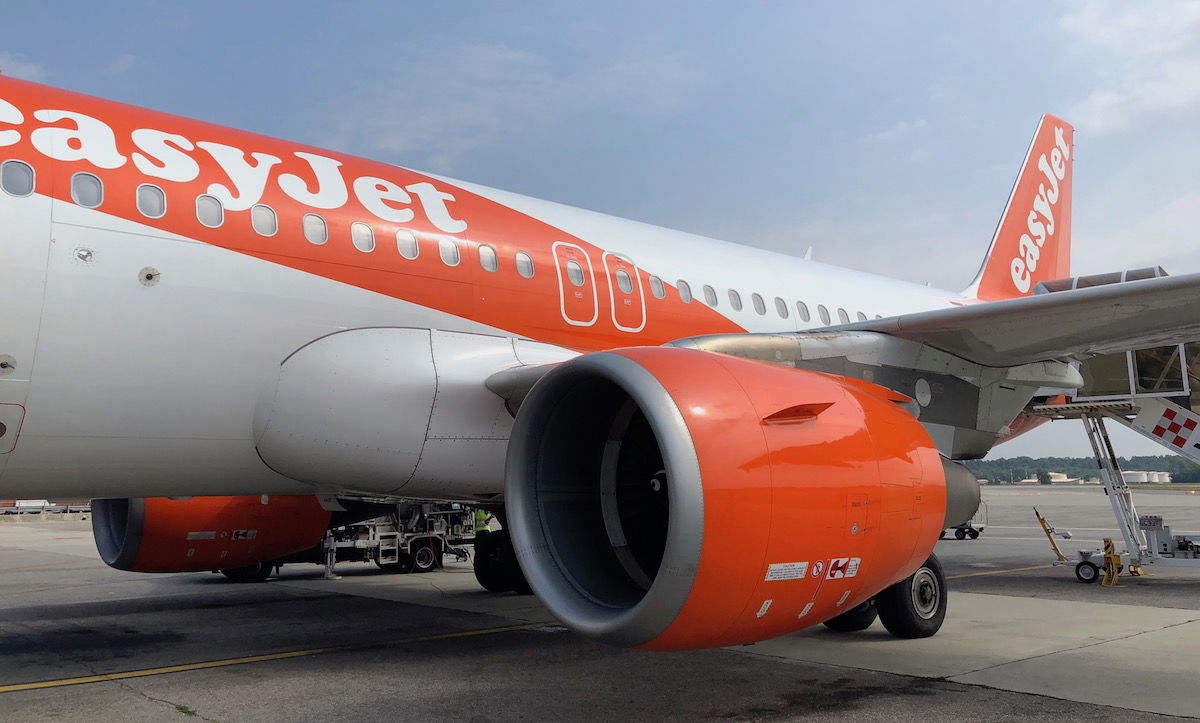There’s a new airline planning on launching operations in a couple of months, and tickets are expected to go on sale soon.
In this post:
Tel Aviv Air plans Hamburg to Tel Aviv flights
Tel Aviv Air is a new Hamburg-based airline that plans to launch flights to Tel Aviv as of September 19, 2021. The airline initially intends to operate the roughly 2,000 mile flight (~4.5 hours in each direction) twice weekly, and tickets should go on sale as of late July on Tel Aviv Air’s website.
Tel Aviv Air will operate this service with a Boeing 737-800, featuring 189 seats. The plane will include a premium economy section featuring 14 seats (including blocked middle seats), and then the rest of the plane will be in a standard configuration.
When operations launch, Tel Aviv Air will be operating with a 737 leased from Enter Air, which is a Polish charter airline that operates a fleet of over two dozen aircraft.

Who is behind Tel Aviv Air?
Tel Aviv Air was founded in late 2020 by Shlomo Almagor and Paul Scodellaro, who have both been in the travel industry for a long time. Almagor had a travel company focused on Israel, while Scodellaro was a sales manager for Germania.
The two claim to know the country, the route, and the potential customers very well. The target for this route are business travelers, tourists, and travel groups (so basically everyone). The company claims that the catchment area for the flight includes nearly 12 million people in Hamburg, Schleswig-Holstein, Lower Saxony and Bremen. It’s also mentioned that around 6,000 people of Jewish faith live in the north German communities, and that they’re an important target for trips to friends and relatives.
The company has financial backing — Beteiligungsgesellschaft Hamburg GmbH (BTG) is involved as a silent partner, and the financing model is secured by Bürgschaftsgemeinschaft Hamburg GmbH (BG).
Tel Aviv Air’s surprising revenue goals
Perhaps I’m reading too much into this, but in the first full financial year, Tel Aviv Air expects sales of nine million Euros. I hope the airline is planning on increasing frequencies significantly, because that seems highly unrealistic to me with twice weekly flights:
- With twice weekly service the airline would operate a total of 208 flights (104 flights in each direction)
- That’s roughly ~43K Euros of revenue per flight per direction
- That’s like selling the plane to 100% capacity with average fares of ~229EUR per person per direction, which is totally unrealistic
- As a point of comparison, you can fly ultra low cost carriers roundtrip between Germany and Israel for under 100 Euros, or you can fly full service airlines roundtrip for 200-300 Euros
I hope the airline plans to increase frequencies significantly, and/or has some amazing cargo contract, because otherwise that kind of revenue is not going to happen.

The problem with one route European airlines
Clearly the people behind the airline see potential for the route between Hamburg and Tel Aviv, which is fair enough. Maybe there is demand — I haven’t dug into the numbers. The route doesn’t currently have any service — meanwhile between Berlin and Tel Aviv you have competition from EasyJet, EL AL, and Israir.
Even so, I don’t really get the concept of these one route airlines in Europe for one simple reason. A European ultra low cost carrier could launch this route if it saw sufficient demand, and it could do so with a significantly better cost structure.
If an airline like EasyJet or Wizz Air decided to launch this route, I’d have to imagine it’s game over for Tel Aviv Air. These airlines can make money selling tickets at a fraction of the cost, with better name recognition and distribution capabilities.

Bottom line
Tel Aviv Air is a new airline that plans to launch twice weekly flights between Hamburg and Tel Aviv as of September 2021. The airline will initially lease a 737 from Polish charter operator Enter Air to operate this flight, though perhaps in the long run will operate with its own plane.
I’m curious to see how this works out. I’m skeptical, for reasons explained above.
What do you make of Tel Aviv Air?
(Tip of the hat to @goren_uri)





Your presumptions are pretty wrong. You need to have lived in Hamburg to understand that. For years, since Air Germania went bust, Israelis, Jews and even Arabs living in Hamburg looked for an airline to offer direct flights. Almagor, who was in charge of the HH-TLV line under Air Germania talked to EVERYONE - EasyJet, Lufthansa, all of them said no. The Air Germania line was ALWAYS FULL, I remember trying to book but the...
Your presumptions are pretty wrong. You need to have lived in Hamburg to understand that. For years, since Air Germania went bust, Israelis, Jews and even Arabs living in Hamburg looked for an airline to offer direct flights. Almagor, who was in charge of the HH-TLV line under Air Germania talked to EVERYONE - EasyJet, Lufthansa, all of them said no. The Air Germania line was ALWAYS FULL, I remember trying to book but the flights were full. When I did get to take a flight, there were always waiting lists. When the line was cancelled people were in shock, many people, whole flights, who paid for the tickets, were left without the ticket or money. Air Germania admitted the the direct line to TLV was one of the only profitable ones, why the other airlines passed an opportunity, no idea. "Not enough planes", "previous commitments", etc., were some of the excuses. So yes, this line, from the second biggest city in Germany to Tel Aviv is very logical, thousands of people living here are sick and tired having to pay the double, pass through other countries, spending hours for nothing. And we don't want to go to Berlín either, hours drive, with all due respect. Smaller cities in Europe have direct flights, and if Frankfurt can, Hamburg and north Germany can too. And, by the way, if EasyJets picks up the glove, well, not that a big tragedy for Almagor either, TLV Air is not an airline with planes, pilots, etc., they charter everything. That said, Paul - you're wrong, yes I now you know the stats about pilgrims and so on, but pilgrims who go once in their life to Israel can drive to Berlin or Frankfurt. That's not the reason. The 5 times I took a direct flight forth and/or back, I knew at least several people in the flight, and then there were Israeli tourists, company packages, etc., in the summer tourists to the north and the Frisian islands and even south Dänmark, and -by the way- many many Arabs (one time I think half of the plane spoke Arabic). Germans (I mean "Germanic" Germans) were never the biggest part of the flight.
Tel Aviv Air is only a socalled virtual airline. Enter Air is operating, being chartered by the travel organizer TAA.
Morgan - the capital of Israel is Jerusalem, not Tel Aviv.
Let the LCC's of the area try to undermine 2 huge German backers of a Germany based company.
You'll see revenge tactics even worse than those tried on Brexit that will prevent any non German company running the route.
Of course, I could be wrong about this.
PS @Morgan: Tel Aviv was the former capital, Jerusalem now is
It is? As I understand it Jerusalem has always been the capital, since independence, although most countries do not recognise it as such. Those countries, if they recognise the State of Israel at all, have their embassies in Tel Aviv but they don't consider it to be the capital. You may be referring to US recognition of Jerusalem's status, but that's a change of US policy not a change of reality on the ground.
yes, you are wrong, The company already operates.
Odd that they are German based but named after the Israeli capital
The Israeli Capital is Jerusalem
This airline is clearly going nowhere, but man, Beteiligungsgesellschaft is such a great word.
Having formerly lived in Hamburg, my first reaction was that I didn't think there was a huge Jewish community there. Upon reading further that there are only 6,000 Jews in the greater northern German area confirmed this.
The Clientele will most certainly be tourists and not necessarily the Jewish community. More than half the tourists – some 56% – who visit Israel are Christian, with approximately 19% defining themselves as pilgrims. Forty-one percent of Christian visitors are Catholic, 27% Protestants and 28% Orthodox.